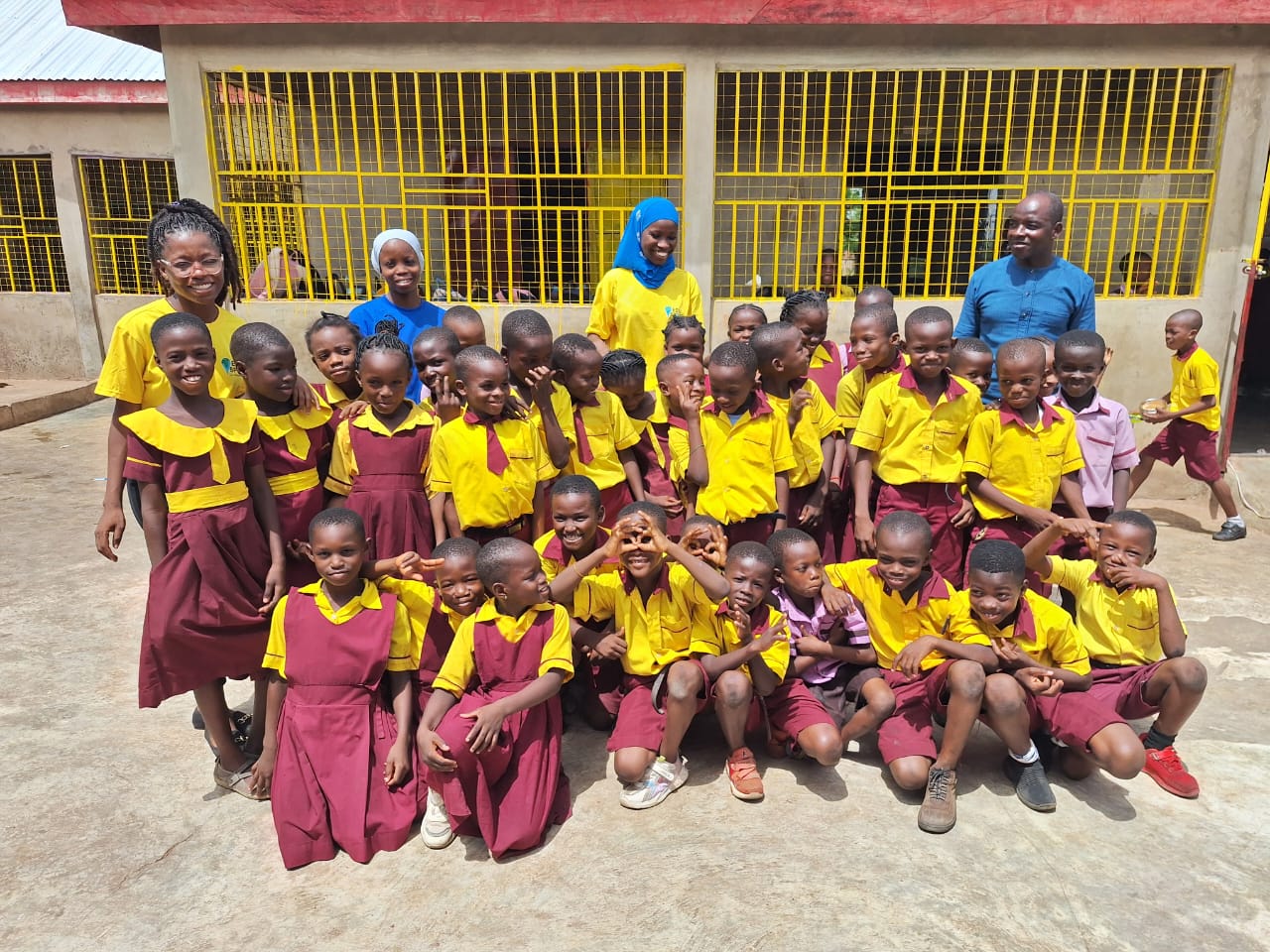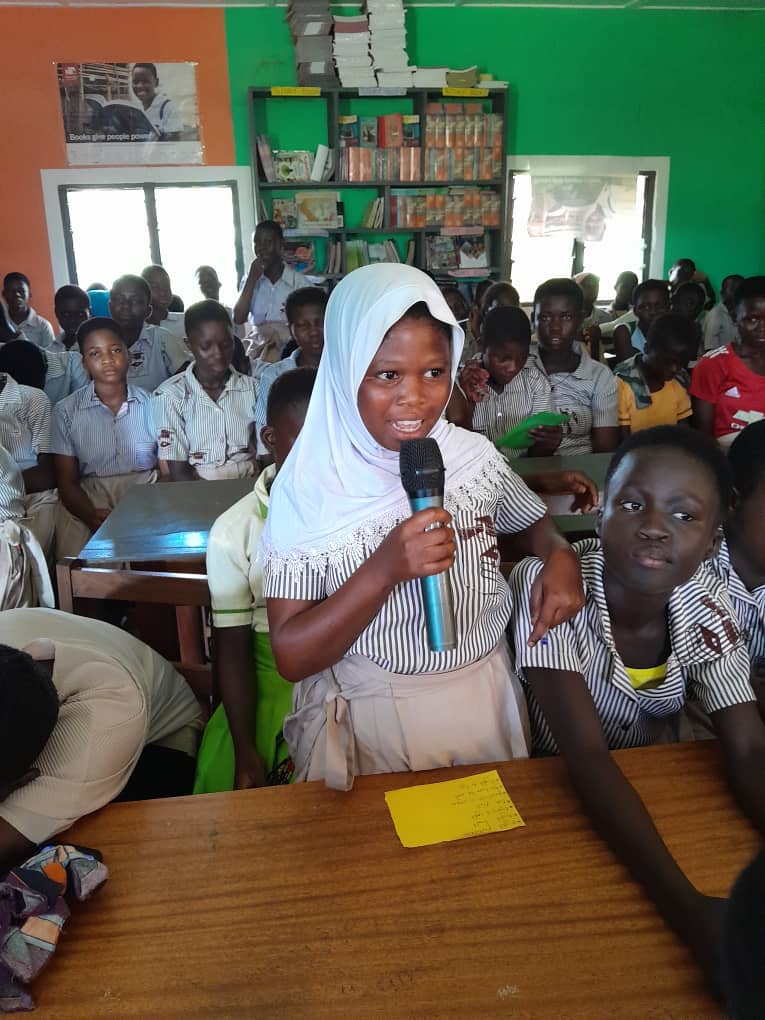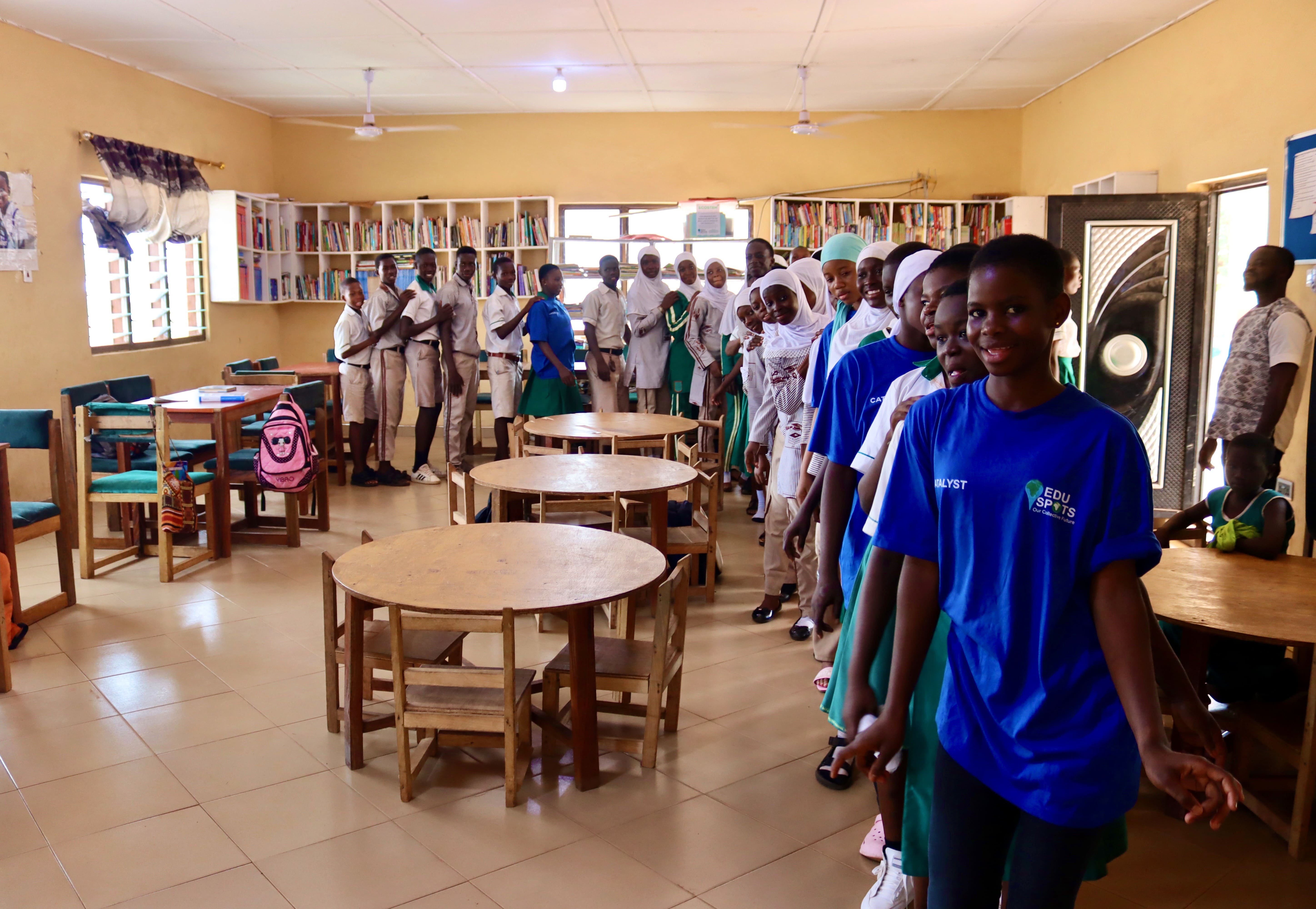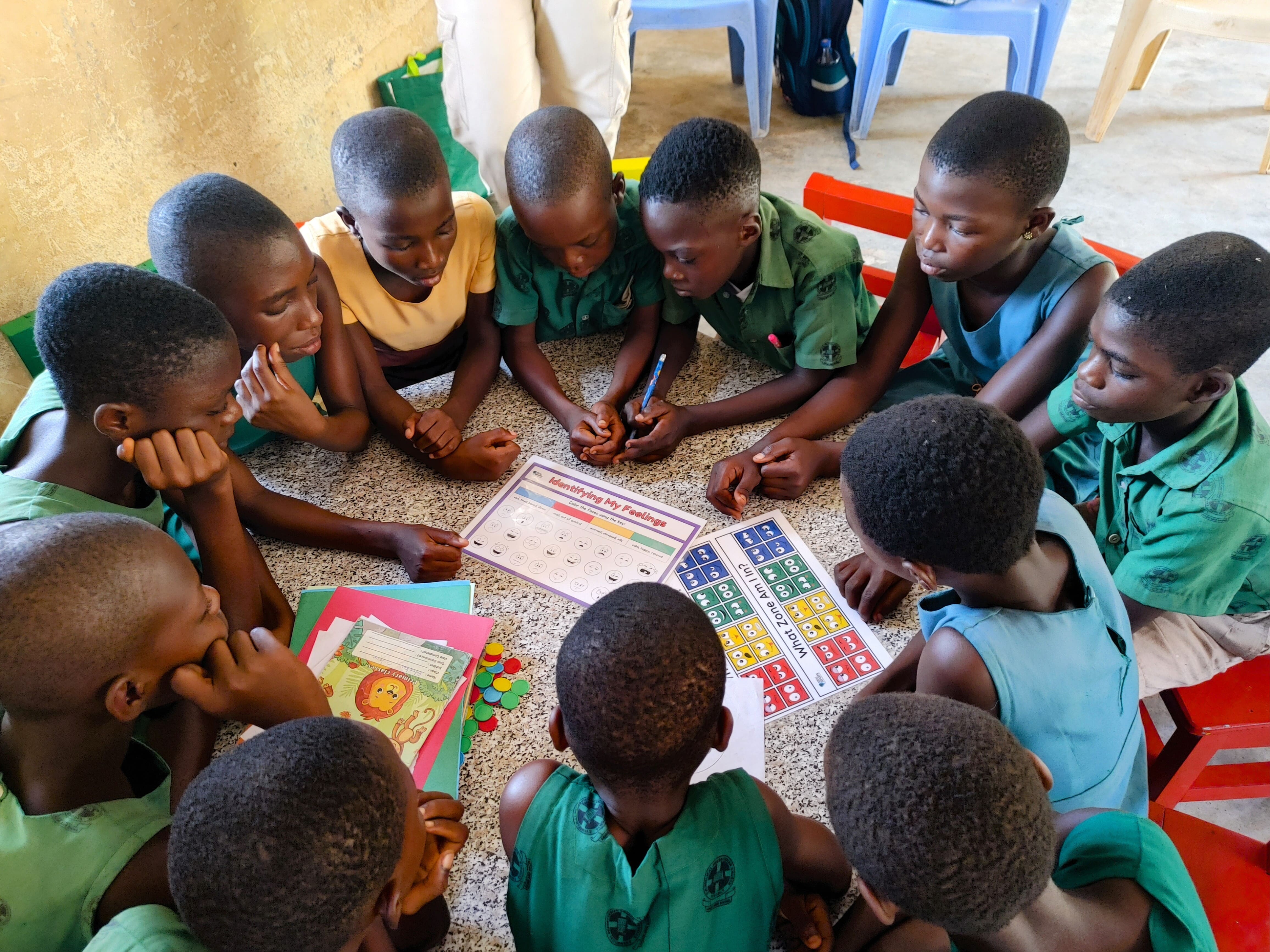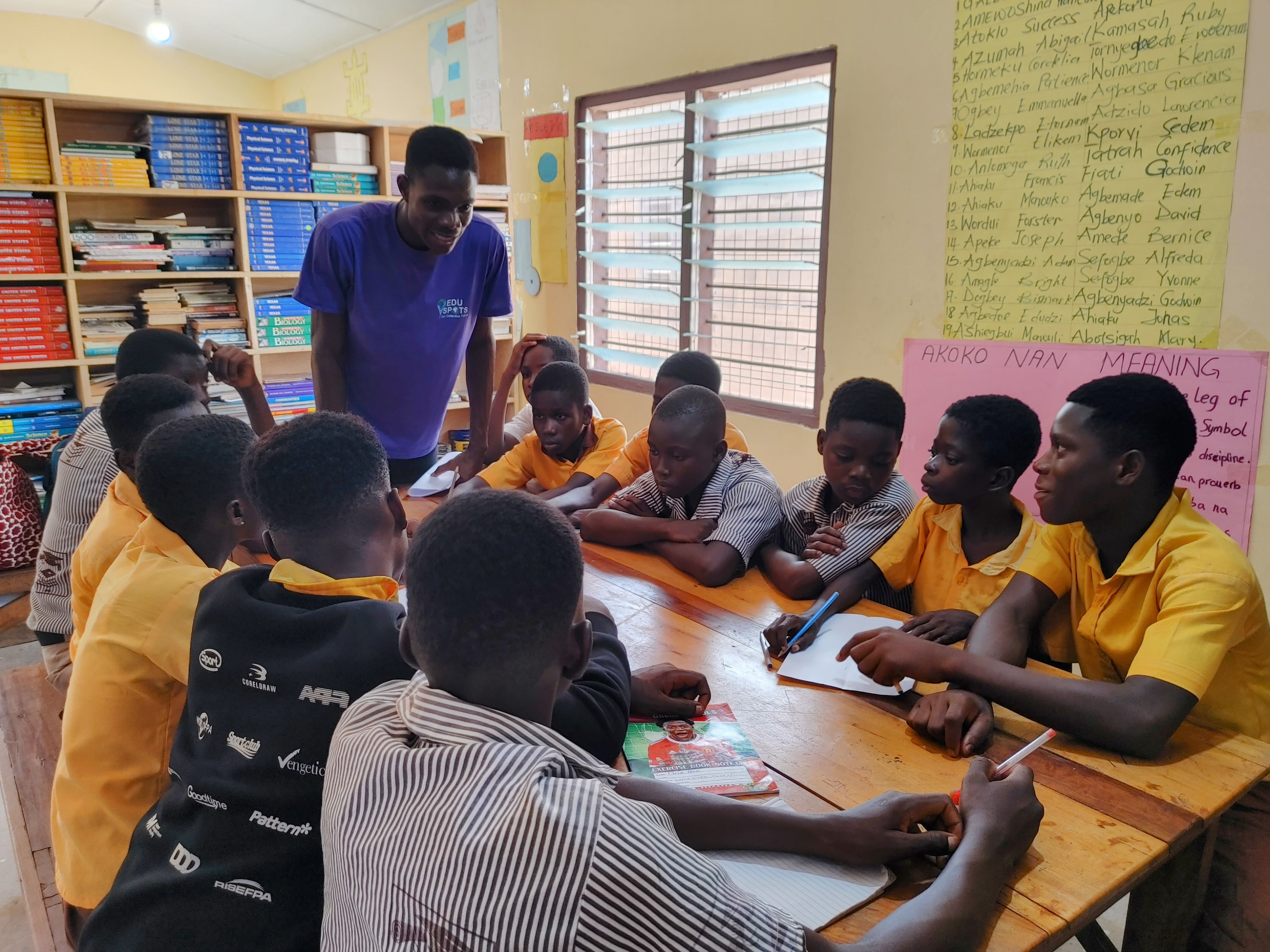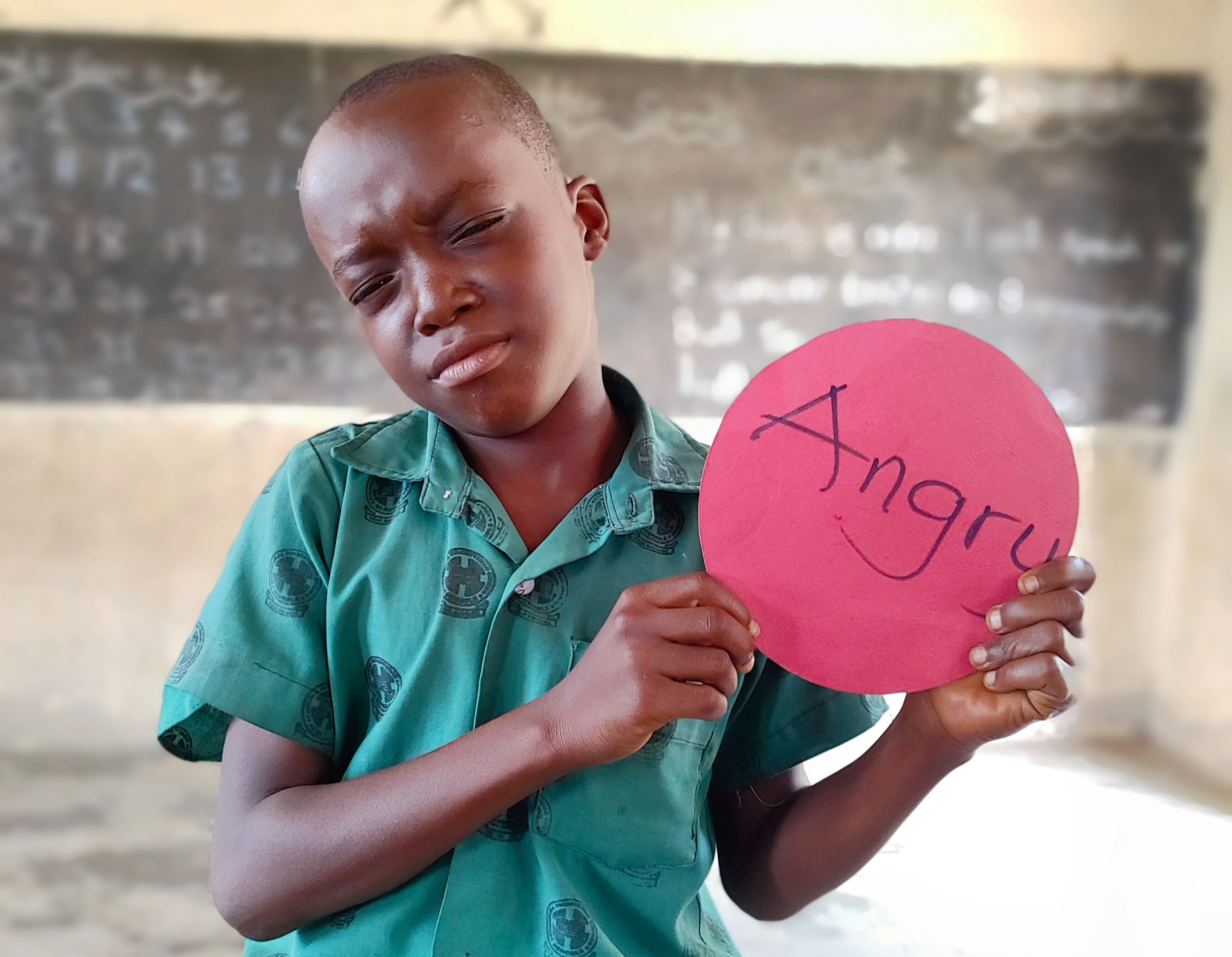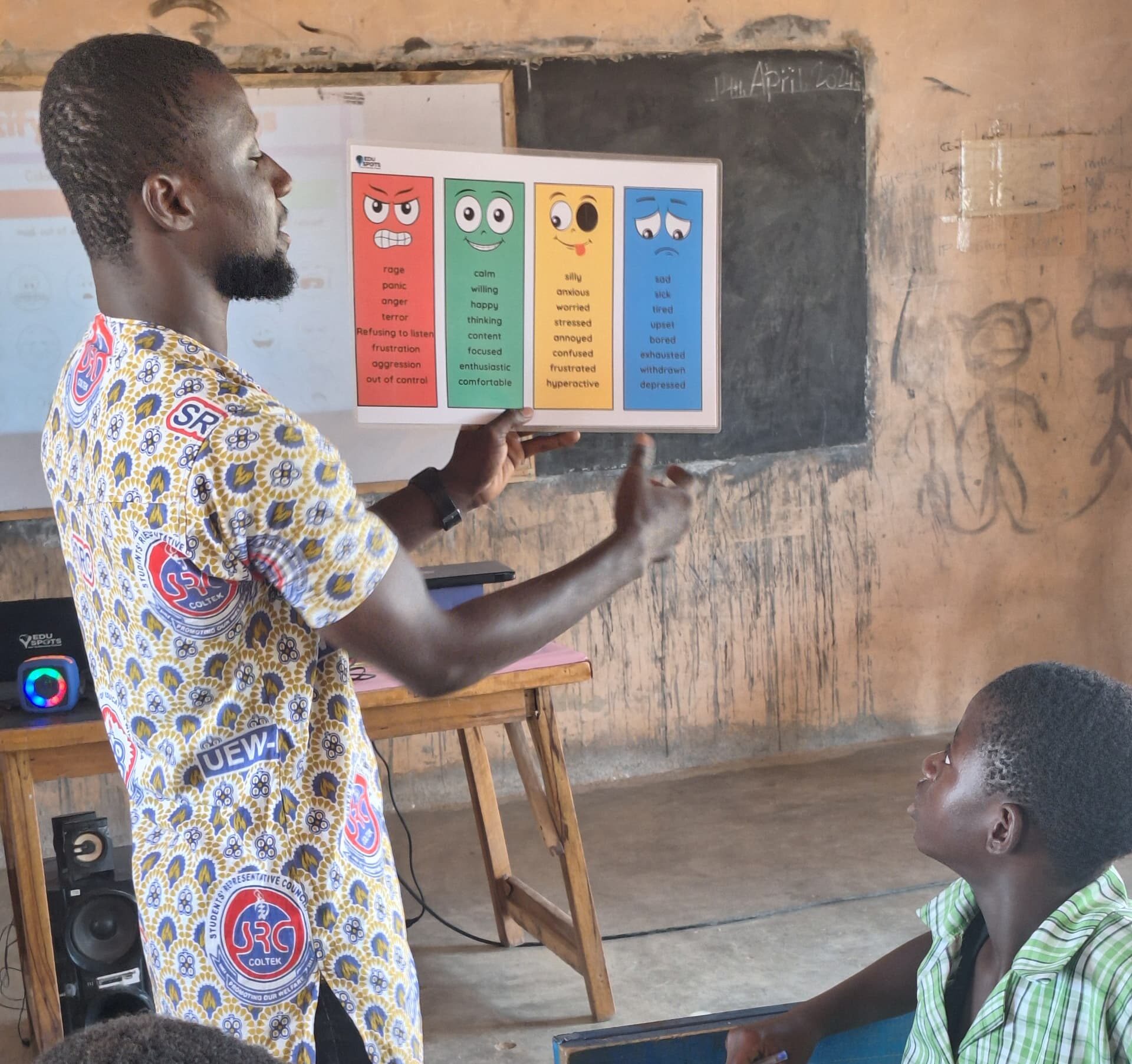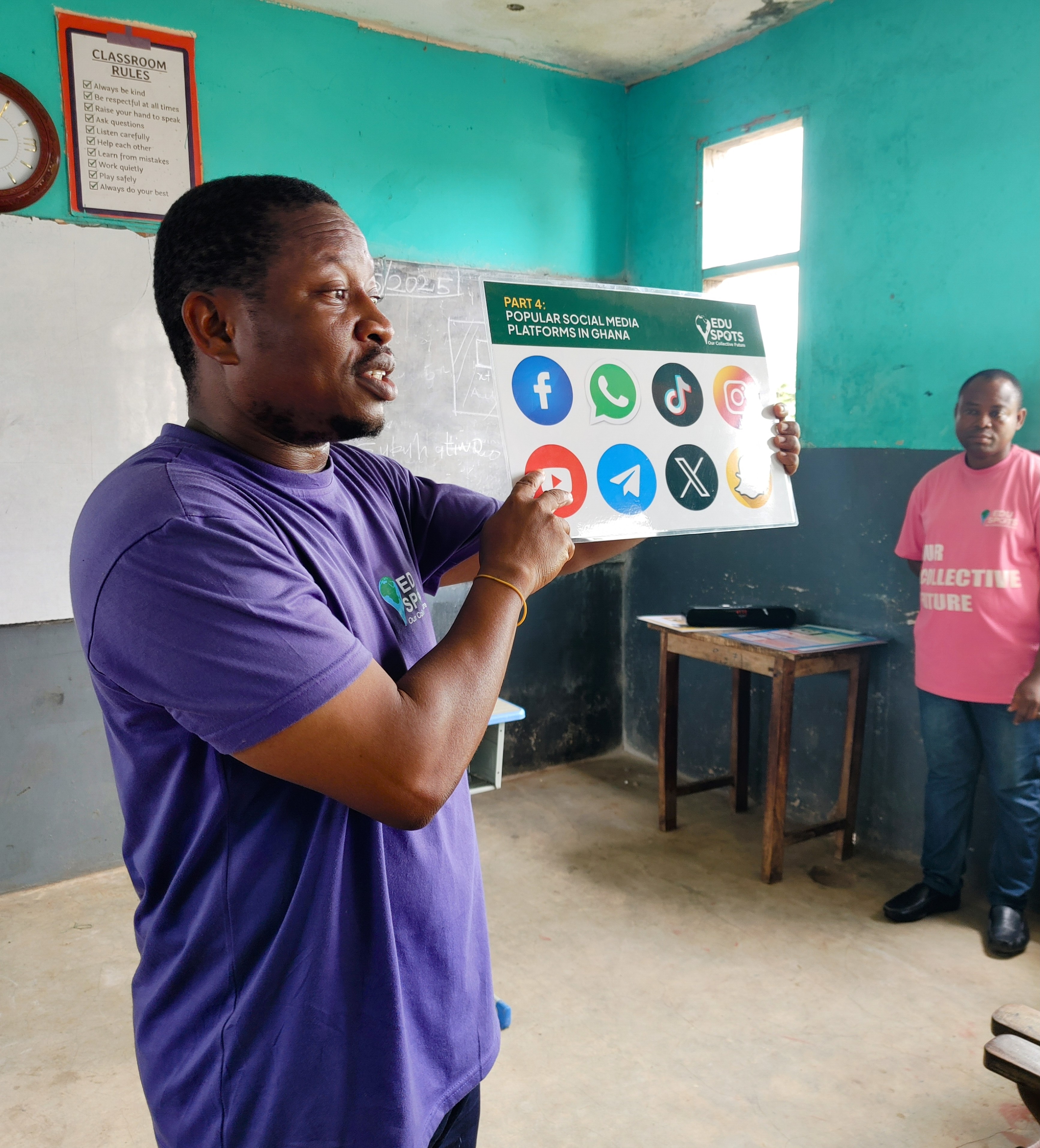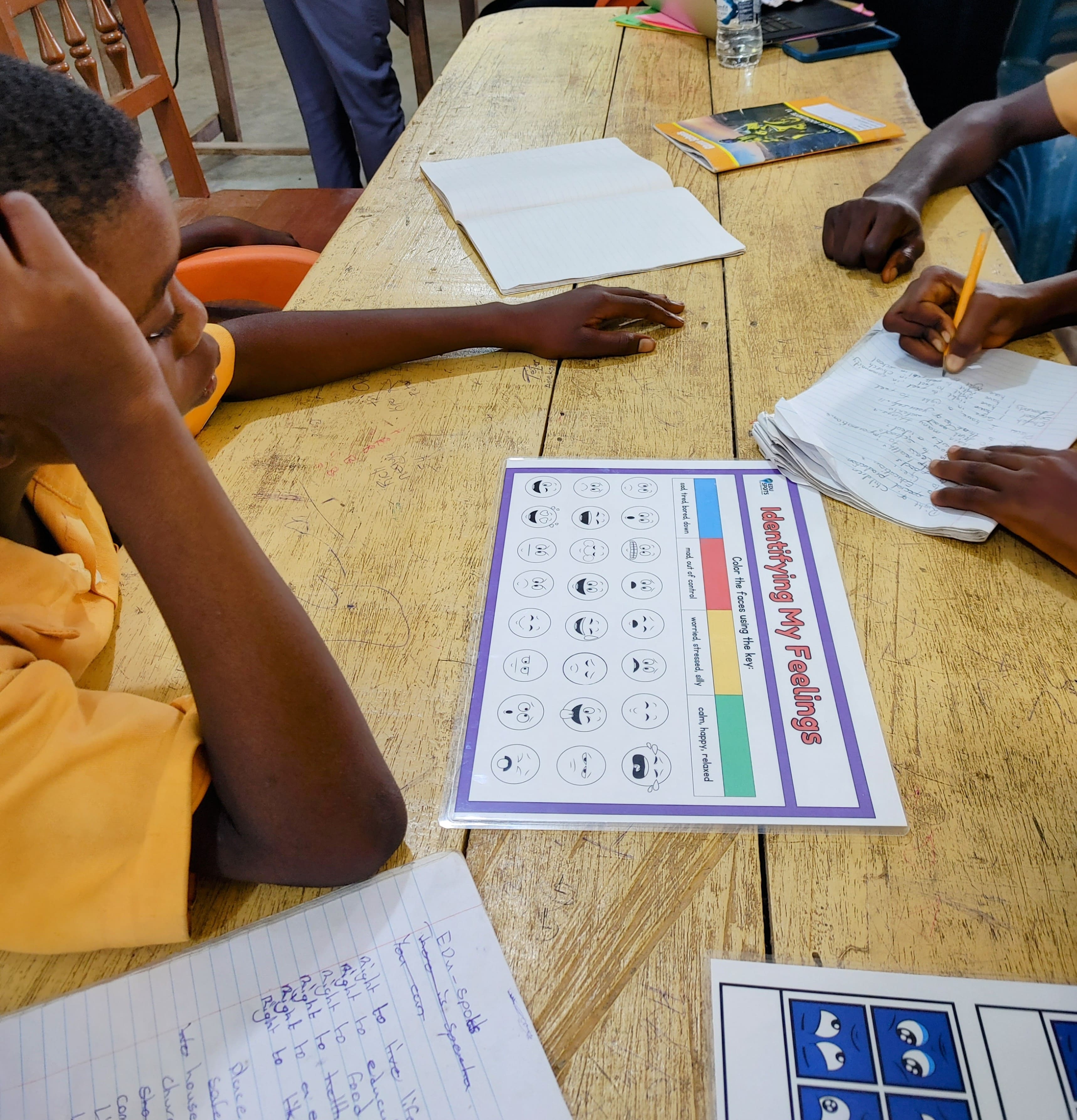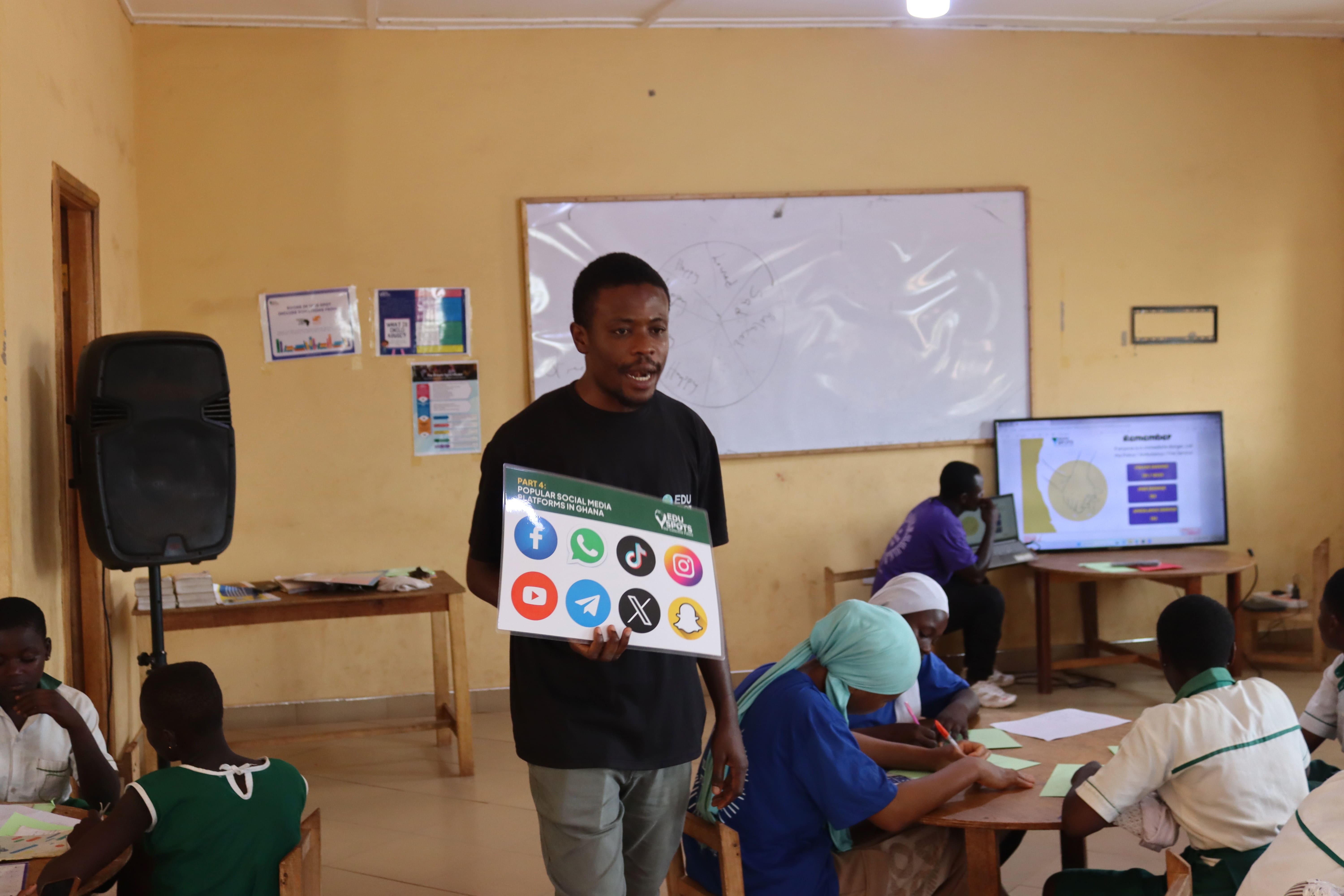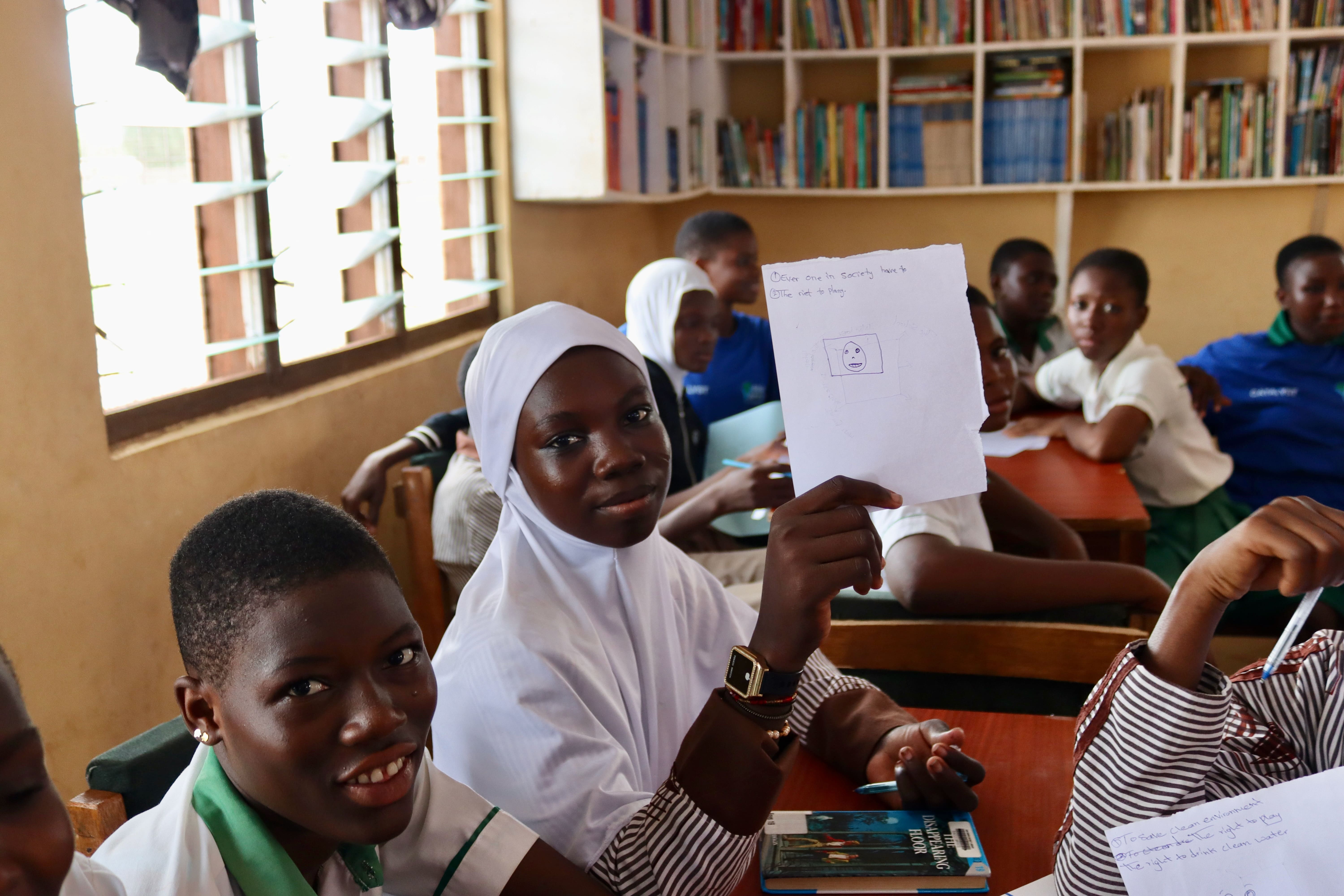“Class, stand!”
“Good morning, Sir!”
“How are you?”
“We are fine, thank you, and you?”
“I’m also fine. Sit down.”
It’s a script that plays out in almost every Ghanaian classroom. Predictable. Polite. Polished. Yet beneath its formality lies something far more complex: a culture where learners are conditioned to present emotional neatness, even when they may be struggling inside.
And if you haven’t yet, take a moment to watch our now-famous Penguin Dance icebreaker – a playful way we got learners & facilitators moving, connecting, and ready to talk about what safety really feels like. It’s taken rural Ghana by storm.
This year, as EduSpots rolled out our Keeping Spots Safe trainings across 50 communities with over 10,000 learners participating, we began asking harder questions. Do learners truly understand how they feel? Can they articulate it in words? Do they believe those words matter, especially in conversations with adults?
From Rights to Reflexivity:
In 2023, our safeguarding work focused on facilitating critical dialogue, particularly around disciplinary practices that many now recognise as needing to be consigned to the past. “Caning.” “Kneel down.” “Go out of the class.” These practices have historically been common in classrooms, and through our sessions, we explored more constructive alternatives in alignment with Ghana Education Service’s evolving emphasis on positive reinforcement.
We introduced participatory rights-based approaches that positioned teachers and learners in the same space, asking reflective questions and re-examining norms. A powerful scenario emerges when we imagine this: If a teacher, together with learners, discusses and acknowledges that certain punishments are forms of abuse, what does that mean for their own future actions? These are the tensions that challenge educators to think more deeply about the alignment between what they teach and how they act.
An independent evaluation of the EduSpots model earlier in 2024 captured a visible shift in discipline culture. One school-based Catalyst noted:
“We have reduced the use of excessive punishment to correct them and have also developed better and healthier relationships with their teachers than before.”
This kind of feedback affirms the deeper cultural work already underway – work that Keeping Spots Safe continues to build on.
Turning Inward: Giving Language to Feelings
This year (2025), our focus turned to emotional literacy. We asked learners to go beyond the familiar greeting – “How are you?” – and reflect on how they truly feel. When we introduced emotional wheels & drills and asked them to name their current emotions, the responses were startlingly limited. Happy. Sad.
Nothing more.
This limitation reflects the few opportunities children have to explore, name, and validate their emotional experiences. And when a child can only say “I’m sad,” it becomes incredibly difficult to tailor the right kind of support. Recognising the difference between sadness, stress, depression, frustration, or anger can change the way we respond – or whether we respond at all.
Our sessions created space to expand this vocabulary through embodied activities, reflective games, and storytelling – tools that support learners in naming their feelings and, eventually, advocating for themselves with greater clarity. As one learner from Abutia Spot put it: “I can confidently pass on an abuse even if it involves a close relative because I don’t want anything to come in between my academic life.”
Culture and Silence: Why Voice Takes Courage
In Kumbungu, one Catalyst offered a powerful insight: “In our Dagomba culture, it is not easy for a child to report concerns to adults.” This quiet statement carries weight. Many children know who they could talk to. Fewer believe they’ll be taken seriously — or protected.
This year’s training delved into those layers. Learners listed their five most trusted adults. Teachers often didn’t appear in their top three. Parents, peers, siblings, and uncles came first, and here we may pause to question the place of relational trust in our schools and in various educational settings.
To begin addressing this, we created learner-led spaces that invited EduSpots’ teacher-Catalysts to listen to what trust looks like from the child’s perspective and where our Catalysts could most effectively respond with empathy.
We framed relatable scenarios, asking learners to think about peers who may face difficulties at home or in school. This invited them to acknowledge that socio-economic challenges, such as long commutes, household chores, or emotional neglect, can all affect a child’s ability to learn. One Catalyst from Abutia Spot remarked: “They are confident to pass on anything that makes them feel unsafe not only at the Spot but the school as a whole. For instance, a learner came to report a behaviour of another learner and she said, ‘if not because of you madam I will fight her.’” These comments signal the early emergence of more trusting, supportive learner-teacher relationships.
Online Safety
From emotional well-being, we transitioned into another essential theme: online safety.
We began by showing learners flashcards of popular social media platforms – WhatsApp, TikTok, Facebook, and Snapchat. Recognition was almost unanimous. But when we asked who had their own devices, very few raised their hands. Most accessed the internet through borrowed phones or family gadgets.
This contrast opened up an insightful discussion. What does it mean to be digitally active but digitally unprotected?
We used the 3Cs framework (Content, Contact, Conduct) and the THINK model to unpack both risks and responsibilities. Rather than framing the internet as dangerous, we explored its possibilities – a place to learn, share, and contribute positively to their communities. These sessions encouraged learners to think beyond entertainment: What does a responsible digital citizen look like? What do I want to leave behind online?
Redefining “I’m Fine”
As we extend this year’s Keeping Spots Safe education to the community and parents in June, one reflection lingers.
Perhaps it’s time we listened more closely.
Maybe the learner isn’t fine – they’re just not sure how to say otherwise.
And perhaps, one day, when the teacher walks in and asks, “How are you?”, a learner might confidently reply:
“Actually, I’m feeling overwhelmed today. And here’s why.”
That’s the learning space we’re working toward at EduSpots. But our work doesn’t end here.
Looking ahead:
- We’re seeking further funding to train Keeping Spots Safe champions & Headteachers across our Spots with more targeted, in-depth safeguarding skills to effectively handle complex issues in response to recommendations from the Independent Evaluation.
- We aim to deepen collaboration with schools and GES stakeholders through whole-school consultative dialogues on non-punitive behaviour management approaches.
- We’ll expand partnerships with state bodies like the Social Welfare Department and equip Spot Management Committees, who are at the heart of our Spot communities, to better understand their role in upholding children’s rights and the legal framework to support their advocacy work.
- We’re refining our language, encouraging terms like “pass it on” to reduce stigma around reporting concerns.
- We will continue creating multimodal Keeping Spots Safe resources for learners and parents in accessible formats.
Safety must be a culture. One rooted in relationships, reinforced through voice, and realised through action.
The real test of safeguarding isn’t only about whether a child knows who to talk to.
It’s whether that adult listens and acts.
In 2025, we commissioned Expectation State to lead a comprehensive evaluation across 10 Spot communities, interviewing over 200 learners, Catalysts, parents and community leaders. You can read the full report here. These were some of the key findings in relation to the outcomes of Keeping Spots Safe activities.
Reduced use of corporal punishment in schools. “There has been a shift from physical punishment to more constructive disciplinary methods.” (Expectation State, 2025) A respondent shared, “We have reduced the use of excessive punishment to correct them and have also developed better and healthier relationships with their teachers than before.”
Parents report adopting more positive disciplinary practices. One community member shared, “I used to shout and yell at my children when they did something wrong, but I now speak to them in love when they make mistakes.”
Increased community engagement in the project: A Catalyst from Sakasaka reported: “The chief visits the Spot every two weeks to monitor it continually. Community members have taken ownership of the project.” A community leader in another Spot stated: “EduSpots has brought together people from all occupations in our community. It’s beautiful to see students, teachers, parents, and local leaders working together towards a common goal”.
Girls and women have increased confidence: A Catalyst commented “Looking at where I’m coming from, like a girl, it’s not easy for a lady to come out and talk. People always look down upon us ladies, telling us we can’t talk during family meetings or say anything. But now, I will speak and say what I want.” Another Catalyst noted the transformative impact: “These girls were vulnerable but became people who could stand up for themselves.”
Students are able to speak up, understand their rights, and voice concerns: A Catalyst noted, “Most students are now confident when speaking in public, using their voices when necessary and participating in advocacy campaigns to fight for their rights and the rights of vulnerable groups.”
Spreading a culture of inclusion: A Catalyst noted: “We don’t discriminate against who can access this Spot. All people from all occupations come here. Our community is diverse, like a Zongo community. When we come here, we look beyond our differences and see what we have in common.” Survey data indicated a 52% increase in Catalysts’ self-reported empathy and cultural sensitivity scores.
Increased engagement in education: Sixty-eight per cent of parents reported being more engaged in their children’s learning, compared to 30% at the programme’s start.
Improved understanding of reporting processes: Continuous training and education have helped stakeholders, particularly learners, understand and report violations of their rights as reported by community leaders. Enumerators were informed that efforts have also been made to communicate these principles to parents, ensuring a collaborative and practical approach to safeguarding. With most community leaders confirming the effective implementation of the safeguarding principles, one leader expressed that: “We communicate the safeguarding principles even to parents.”
By: Lawrence Dankwah – Head of Education Programmes
Email: ldankwah@eduspots.org.

